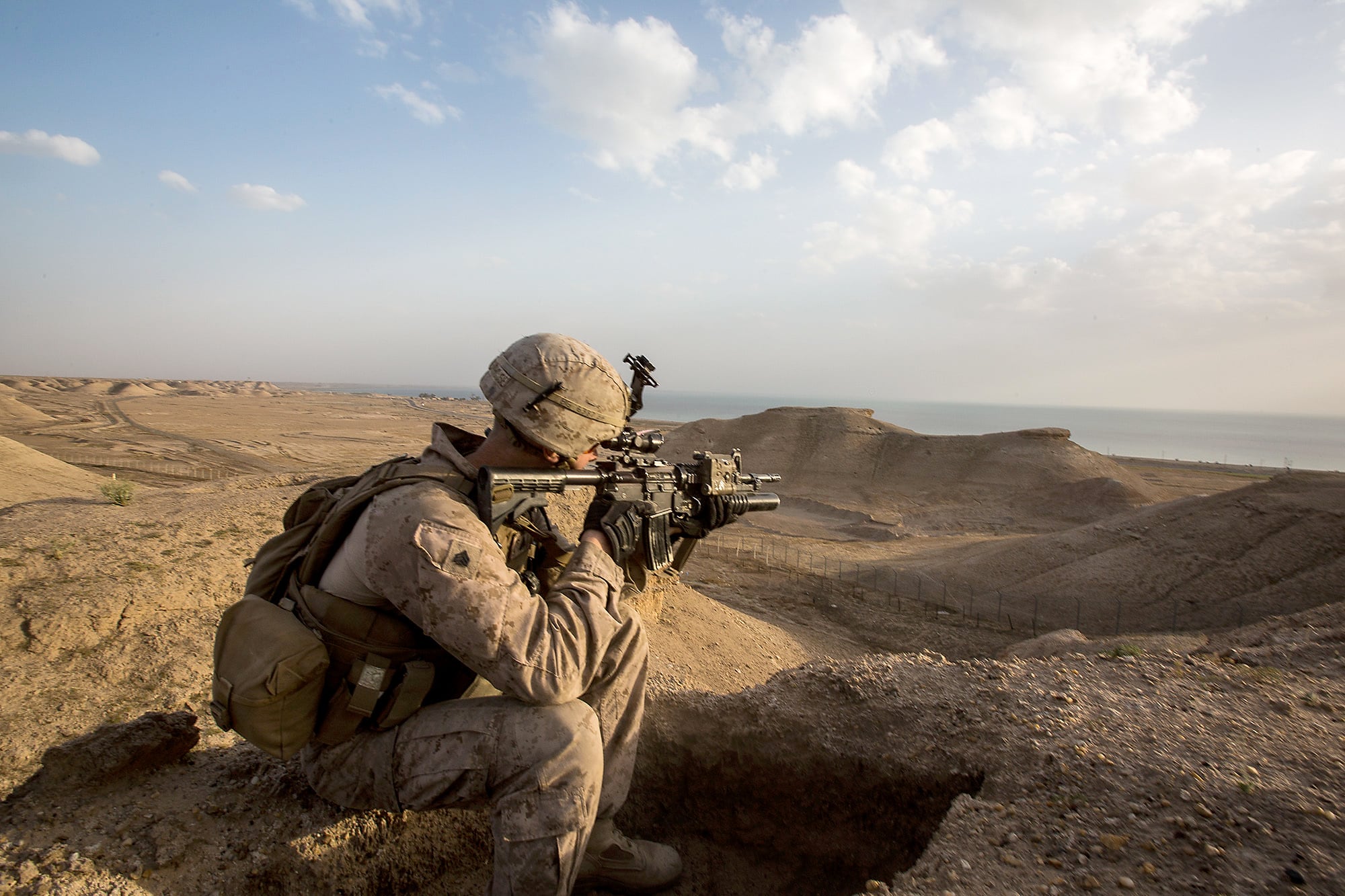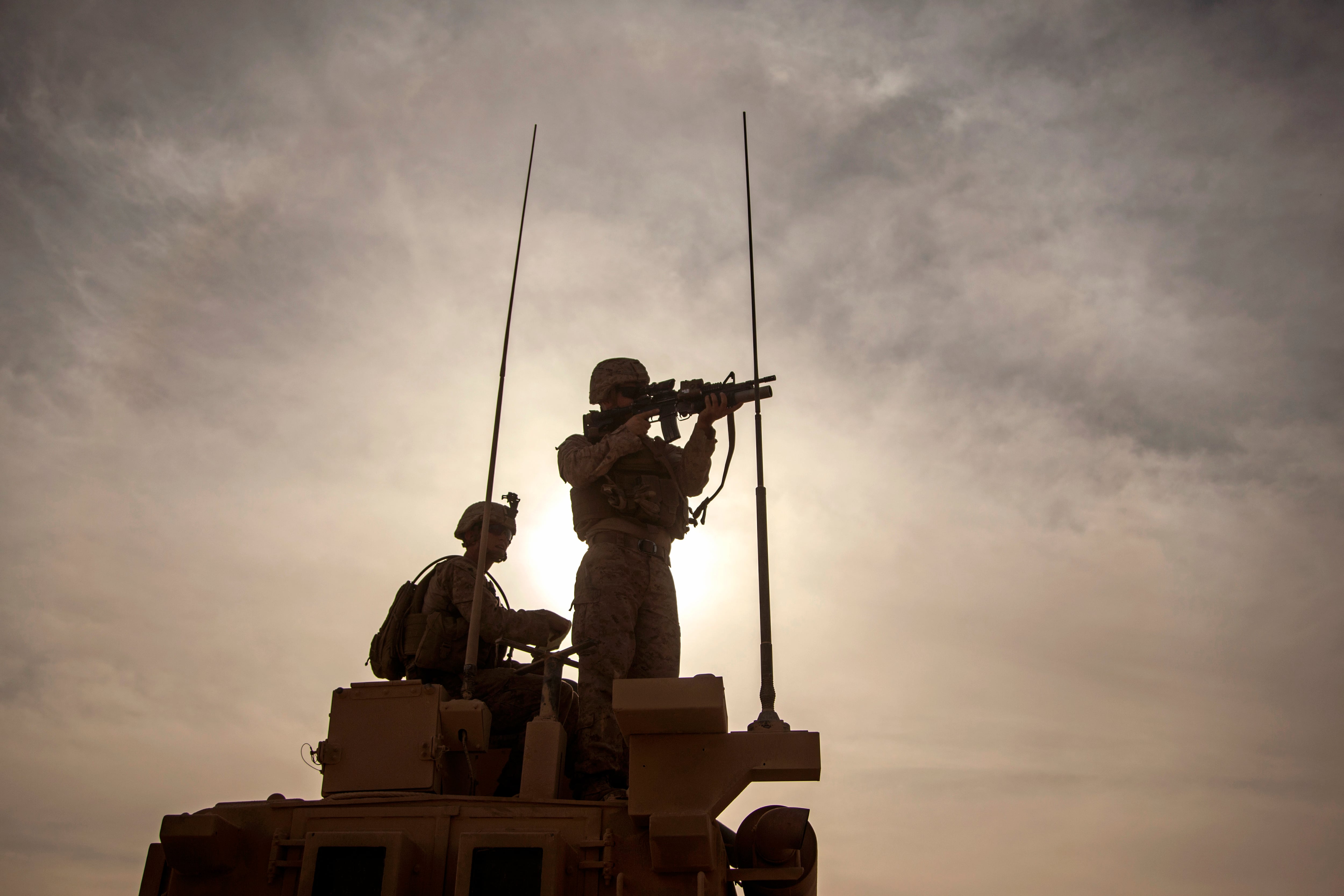A new Marine rotational force has landed New Marines are landing in the Middle East as the U.S. ramps up the fight against Islamic State group militants.
The final contingent of Special-Purpose Marine Air-Ground Task Force—Crisis Response—Central Command 16.2 crisis-response task force departed Camp Pendleton, California, last week en route to the region to begin a nine-month deployment in the region to directly and indirectly bolster Iraqi forces in their fight against ISIS.
Members of 2nd Battalion, 7th Marines will be the ground combat element of the task force, with air support from squadrons of the 2nd and 3rd Marine Aircraft Wings. They'll be led by the 5th Marine Regiment with Combat Logistics Battalion 5 lending logistical support.
The task force includes about 2,300 Marines.
The new rotation of the crisis response force will be tasked with Special Purpose Marine Air-Ground Task Force - Crisis Response - Central Command 16.2, has the mission of rapidly and effectively responding to a variety of contingencies in the combatant command, said task force spokesman 1st Lt. Christopher Harrison, a spokesman for the unit.
As with those they’re replacing, the Marines 16.2 will be on station to launch airstrikes, train Iraqi soldiers, beef up security at embassies and remote military outposts, and recover downed aircraft and pilots at a moment’s notice. They’ll also work alongside U.S. America’s regional allies, training them for the fight.

Sgt. Josh Greathouse, a team leader with Special Purpose Marine Air Ground Task Force-Crisis Response-Central Command, scans the area during a perimeter patrol in Al Taqaddum, Iraq.
Photo Credit: Sgt. Ricardo Hurtado, 5th Marine Expeditionary Brigade
"Put simply, our 16.2 rotation of Marines and sailors will be carrying out the same mission as 16.1, providing a broad range of capabilities to the [head of U.S. Central Command]Centcom commander," Harrison said.
The Marines arrived in theater as the fight against ISIS gains new intensity with Iraqi troops pushing to recapture the northern city of Mosul.
Speaking to troops in Baghdad on Monday, Defense Secretary Ash Carter announced an increased role for the U.S. American military, including additional advisers, attack helicopters and rocket artillery. This comes "on top of what we're already doing," Carter said.
"We're providing air power, command and control, other fire, training, sustainment, logistics," he added.
Carter previously said the U.S. is also considering increasing the number of airstrikes, cyber attacks and American troops to support the Iraqis.
In December, the Iraqis recaptured Ramadi following a bloody, seven-month slog with ISIS. They then consolidated their forces and last month launched a new offensive — dubbed "Operation Conquest" — to envelop and retake Mosul, which is Iraq's second-largest city.
Mosul is at least four times larger than Ramadi, though, and further away from logistical support bases, cautioned Army Lt. Gen. Sean MacFarland, OIR's commander, in a media briefing Monday from Baghdad.
"It's an order of magnitude more challenging than Ramadi was," he said. "Mosul is going to be more difficult, hence the additional support."
This Marine rotation marks the fourth iteration of SPMAGTF—Crisis Response—Central Command since the fall of 2014.
Matthew L. Schehl covers training and education, recruiting, West Coast Marines, MARSOC, and operations in Europe, Africa and the Middle East for Marine Corps Times. He can be reached at mschehl@marinecorpstimes.com.









